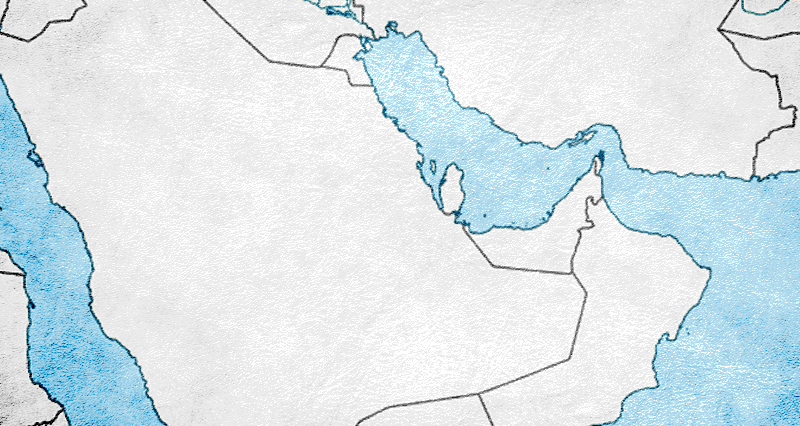It would be historically ignorant as well as ignorant of the influence of the Gulf in the region to simplify the matter by saying that the agreement that was reached between Qatar and other Gulf countries was a simple regional incident in which the disputes between the neighbors have suddenly vanished.
The history of the Gulf is also the history of a series of bloody civil wars from Algeria to Afghanistan, and a history of the financial support for Islamist groups (of varying degress of legality) that have spread all over the region.
The slightest fluctuation in the Gulf concerns the entirety of Islamic geography.
THE BLOODY HISTORY OF THE GULF
Of course, the Gulf took up its “historic role” under the supervision and guidance of Great Britain, then the US imperialism after the 1970s.
This scenario was first put in place in the early 70s and early 80s with support for the Afghan groups against the Soviets, the result being the birth of Taliban and al-Qaeda, the deaths of millions of people and instability in the heart of Central Asia, Afghanistan to the present.
Immediately afterward, things kicked off in Algeria, which had vast underground resources in North Africa in 1990. The civil war, which was provoked in the country as a result of cooperation between France and Saudi Arabia, lasted nearly 10 years, and around 150,000 people have lost their lives. Algeria is still recovering from the wounds of the war.
The Gulf countries set their sights on Palestine. The Palestinian freedom movement, which has received an international support and moved along a secular path back in the mid-1980s, was divided by the Islamist political groups. The result was a weakening in the resistance against Israel. Behind this plan were the financial resources of the United States-Israel and the Gulf countries.
Let us look at a closer date: the so-called ‘arab-spring’ which began in Tunisia in 2010.
An artificial civil war was then sparked in Libya under the name of the Arab Spring. Muammar Gaddafi, who pursued independent politics in North Africa, was horribly murdered by the US-France and NATO. Oil-rich Libya is still on the brink of disintegration, and the Gulf countries were once again the financiers of the Libyan Civil War.
Syria was also struck by the same wave. The entire country, and mainly Aleppo, was destroyed by jihadist groups which were recruited around the world. Millions of people had to flee the country. Today, the imperialists and their pawns are still lurking to divide the weakened Syria, and attempting to establish the Second Israel. The Gulf countries have played a key role in the funding and the recruitment of the jihadist groups in Syria.
Meanwhile, if you follow the footprints of ISIS and similar groups that have devastated Iraq, one track will lead to Washington and the other will lead to the Gulf countries.
On the other hand, the mass uprisings with class-based incentives in Tunisia and Egypt during the Arab Spring were suppressed by the Muslim Brotherhood, the valentine crush of Hillary Clinton and her clique. While Qatar financed Ikhwan throughout the entire process, the Doha-based Al Jazeera TV network continued the propaganda for the group.
Qatar’s support for Ikhwan, which threatens the throne of the other Gulf Emirates, has caused a split among the Gulf itself.
In short, in the lands that were touched by the US-backed Gulf countries, blood and turmoil were the inevitable results.
Aside from the bloody history of the Gulf, there is also a side of the latest agreement in terms of realpolitik.
WHAT IS THE BIGGER PICTURE BEHIND THE GULF AGREEMENT?
First of all, let us mention that it was the Trump administration that mediated an agreement between Qatar and other Gulf countries, and to be specific, it had been Jared Kushner, Trump’s Israel fan son-in-law, and his adviser, Avi Berkowitz.
This, in other words, is a part of Pax Americana plotting.
In the early days of 2020, the Trump administration announced a plan called The Deal of the Century.
The plan aims to normalize relations between the Arab world, especially the Gulf countries, and Israel, thus;
1. To stop the Arab countries’ hostility on Israel,
2. To suppress the Palestinian resistance,
3. To take the Arab countries on an anti-Iranian and anti-Turkey block, together with the United States and Israel.
The United Arab Emirates was the first Arab country in the Gulf to participate in the plan. The Abraham Accords were signed on August 13, 2020. Bahrain and Oman, as well as Chad and the new Sudanese government, are also known to be favorable to an agreement with Israel.
But the region’s major power Saudi Arabia has persistently hesitated to say anything up front about the deal.
Qatar, which has close ties with Turkey and Iran, was also left out of the agreement.
When Kushner and his team went on a second visit to the Gulf to speed up this process at the beginning of last December, they also visited Qatar, where it was announced today that they had an agreement with other Gulf countries, and especially Saudi Arabia.
In my article titled “Can the Gulf Countries cross the lines the West has drawn?”, I summarized the purpose of Kushner’s visit with the following articles;
“1. To normalize the relations between Qatar and other Gulf countries,
2. To disrupt the relations between Doha and Tehran,
3. To also include Qatar in the Deal of the Century as a participant.”
In summary, it is obvious that Washington and Tel Aviv are trying to implement the Deal of the Century with this new reconciliation. We do not know about the contents yet, but we do know it was concluded through a US mediation.
Let me also tell that the Egyptian sources whom I contacted immediately after the reconciliation, said that this “agreement” was concluded through US mediation, that it was aimed at isolating Iran, and that Egypt would not benefit from it.
AGREEMENT IN THE GULF AND TURKEY
Turkey holds close economic and military ties to Qatar.
Meanwhile, the Gulf countries, especially the United Arab Emirates, are pursuing a fierce anti-Turkey policy in the region.
With the agreement which has been the main topic of our article, Turkey’s ally Qatar and other anti-Turkey Gulf countries have normalized their relations.
It is still not yet been reported in the press what Qatar has actually promised to the United States and other Gulf countries in exchange for this agreement.
Sources in the region have shared their predictions that Al Jazeera TV, which is based in Doha and had a major impact in the Arab world, will end its negative coverage against Egypt and other Gulf countries as one possible consequence.
We have these questions in front of us:
1.Will Qatar make a change in its relations with Turkey in exchange for their agreement in the Gulf?
2. Will Qatar’s cooperation with Iran continue? (The two countries have been working extensively in the field of energy, especially in the South Pars Gas Field in the Persian Gulf)
3. Will Qatar’s support for the Muslim Brotherhood continue?
4. What changes will there be in Qatar’s policies in Syria?
The possibilities are as follows;
1. In the event of a disruption in Qatar’s relations with Turkey in exchange for the agreement in the Gulf, Turkey’s military presence in the Gulf will be weakened, alongside economic disagreements.
2. If the Gulf agreement includes any decisions about the disruption of Qatari-Iranian relations, Turkey’s stance on this topic would be of even more importance. At this point, Turkey’s policies against Qatar, which could choose to shift away from Iran, will also greatly affect Turkish-Iranian relations.
3. The US government could come up with a deal for Ankara between Turkey-Saudi Arabia and even Turkey-Egypt as a sequel to the Qatar-Gulf peace, which was mediated by Washington; taking steps back in relations with Tehran may be demanded from Ankara in return.
Considering that this mediation between Qatar and other Gulf countries is being enacted by the United States, our last final option would be to gain more strength.
It is not hard to see that even in the best case, such an offer would come at a heavy cost, both on the inside and the outside.
It is not hard to understand that this is a trap of those seeking to build Pax Americana.
The only way to prevail over these American traps for Ankara is to establish direct contact with Cairo as soon as possible on one hand, and to increase the diplomatic traffic to meet with Riyadh, which had disagreements with the United States and the United Arab Emirates, on the other.
Then the next step should be to bring Tehran and Riyadh together under the mediation of Turkey in order to create a regional dialogue against the US-Israeli plans.
The only alternative is that we set sail with the winds of other powers, despite that we are ones steering the ship.

















Leave a Reply